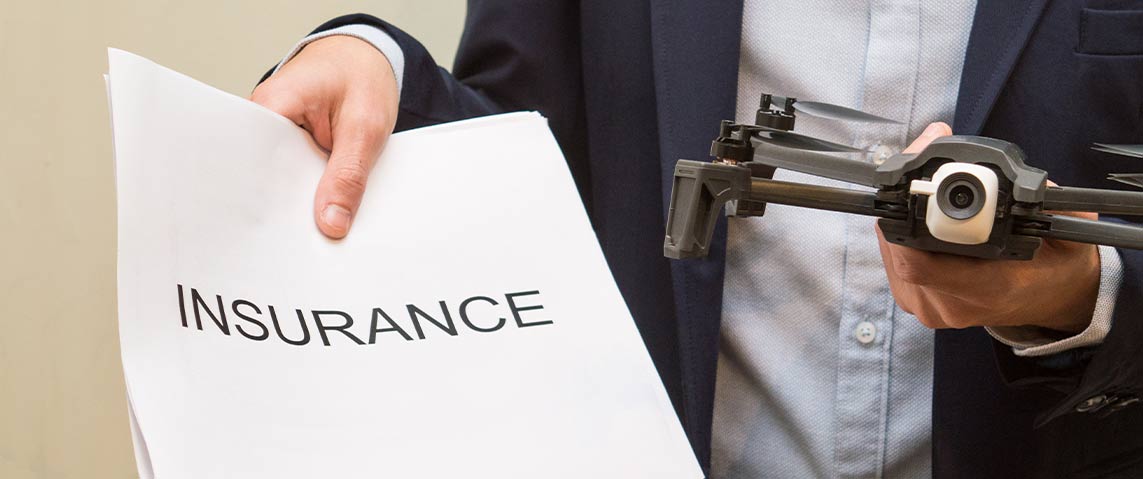The Importance of Equipment Coverage in UK Drone Insurance

Equipment coverage is an essential component of drone insurance, as drones and related equipment can be expensive to replace or repair in the event of damage or loss. Equipment coverage typically covers damage or loss due to a wide range of causes, including accidents, theft, and vandalism.
Equipment coverage can also provide protection against loss of revenue or business interruption due to damage or loss of the drone. For commercial drone operators, this can be especially important, as the loss of a drone can result in significant financial losses due to lost contracts or delays in operations.
When purchasing equipment coverage for drone insurance, it is important to consider the level of coverage provided and the cost of the insurance. Different insurance providers may offer different levels of coverage, so it is important to shop around and compare policies to ensure that the coverage is adequate for the nature of the operation and the risks involved.
In addition to equipment coverage, drone operators may also choose to take out liability coverage, which provides protection against claims from third parties who suffer injury or damage as a result of a drone accident. Liability coverage is not a legal requirement in the UK, but it is highly recommended for all drone operators.
When purchasing liability coverage, it is important to ensure that the coverage is adequate for the nature of the operation and potential risks involved. Different types of drone operations will have different levels of risk and require different levels of coverage.
It is also important for drone operators to comply with all regulations governing the use of drones in the UK. The Civil Aviation Authority (CAA) sets out strict regulations governing the use of drones, and failure to comply with these regulations can result in fines or legal action. Insurance providers may also require proof of compliance with these regulations as a condition of providing coverage.
Another important consideration when purchasing equipment coverage is the value of the drone and related equipment. Insurance providers may require proof of the value of the drone and related equipment in order to provide adequate coverage. It is important for drone operators to keep accurate records of the value of their equipment and to update their insurance coverage as the value of the equipment changes over time.
It is also important to understand the exclusions and limitations of equipment coverage. For example, some policies may exclude coverage for damage caused by certain events, such as acts of terrorism or war. It is important to review the policy carefully and to understand the exclusions and limitations in order to ensure that the coverage is adequate for the risks involved.
Drone operators should also be aware of the deductibles or excesses associated with equipment coverage. A deductible is the amount that the drone operator must pay out of pocket before the insurance coverage kicks in. The higher the deductible, the lower the cost of the insurance, but the greater the financial risk for the drone operator. It is important to choose a deductible that is affordable and appropriate for the level of risk involved.
In addition to equipment coverage, drone operators may also choose to take out hull coverage, which provides protection against damage to the drone itself. Hull coverage may be especially important for commercial drone operators, as damage to the drone can result in significant downtime and lost revenue. Hull coverage typically covers damage caused by a wide range of events, including accidents, weather events, and equipment failure.
When purchasing hull coverage, it is important to consider the level of coverage provided and the cost of the insurance. Like equipment coverage, different insurance providers may offer different levels of coverage, so it is important to shop around and compare policies to ensure that the coverage is adequate for the nature of the operation and the risks involved.
Finally, it is important for drone operators to have a comprehensive risk management plan in place, in addition to insurance coverage. A risk management plan should include measures to mitigate the risks associated with drone operations, such as regular maintenance and inspections, training for all operators, and compliance with all regulations and guidelines.
In conclusion, equipment coverage is an important component of drone insurance in the UK. It provides protection against damage or loss of the drone and related equipment, which can be expensive to replace or repair. When purchasing equipment coverage, it is important to ensure that the coverage is adequate for the nature of the operation and the risks involved. In addition to equipment coverage, drone operators may also choose to take out hull coverage to protect against damage to the drone itself. Drone operators should also have a comprehensive risk management plan in place to mitigate the risks associated with drone operations. With the right insurance coverage and risk management plan in place, drone operators can have peace of mind knowing that they are protected against the potentially significant financial losses associated with accidents or damage to their equipment.

 Appliance
Appliance.jpg)







